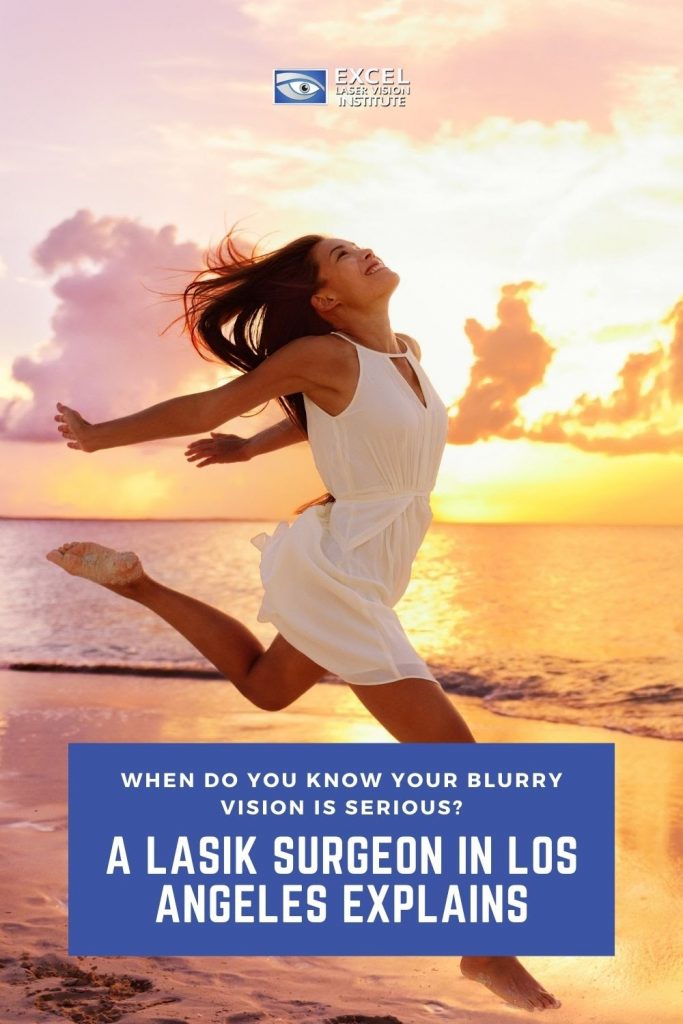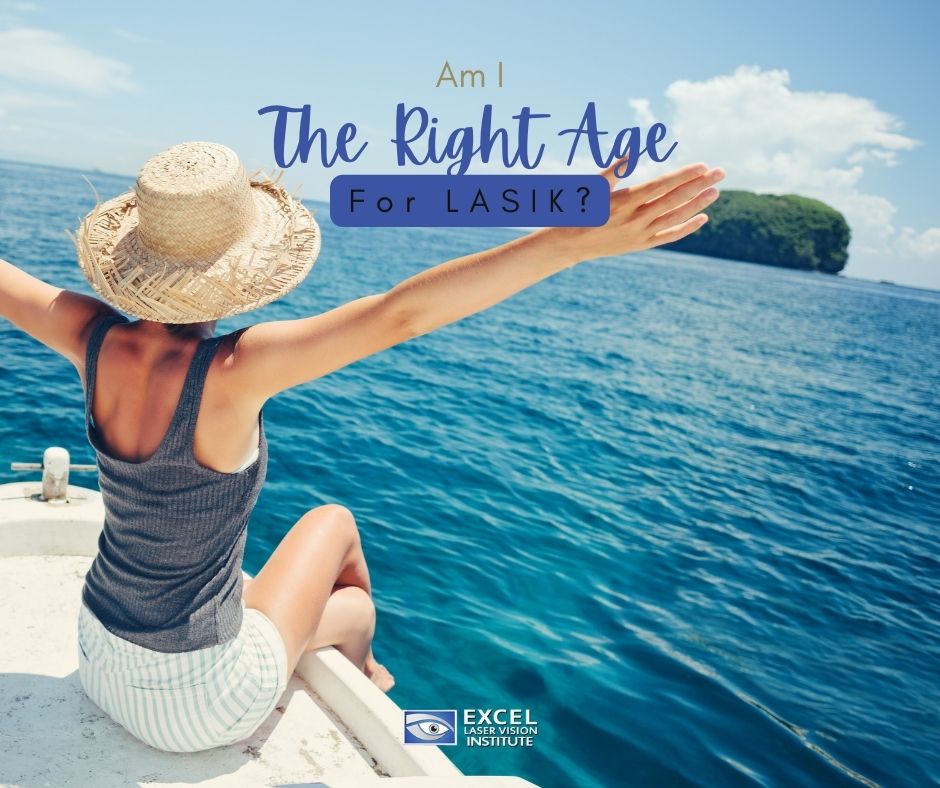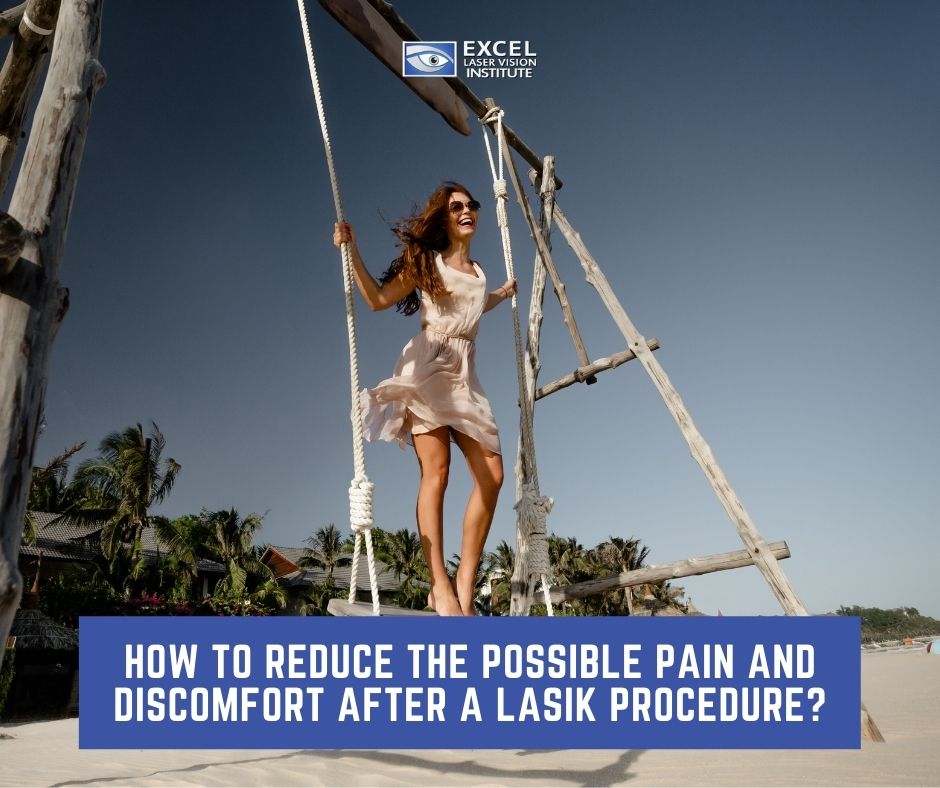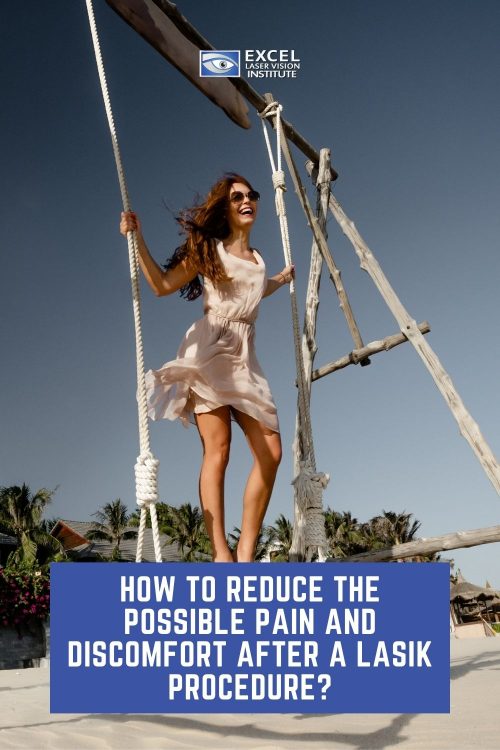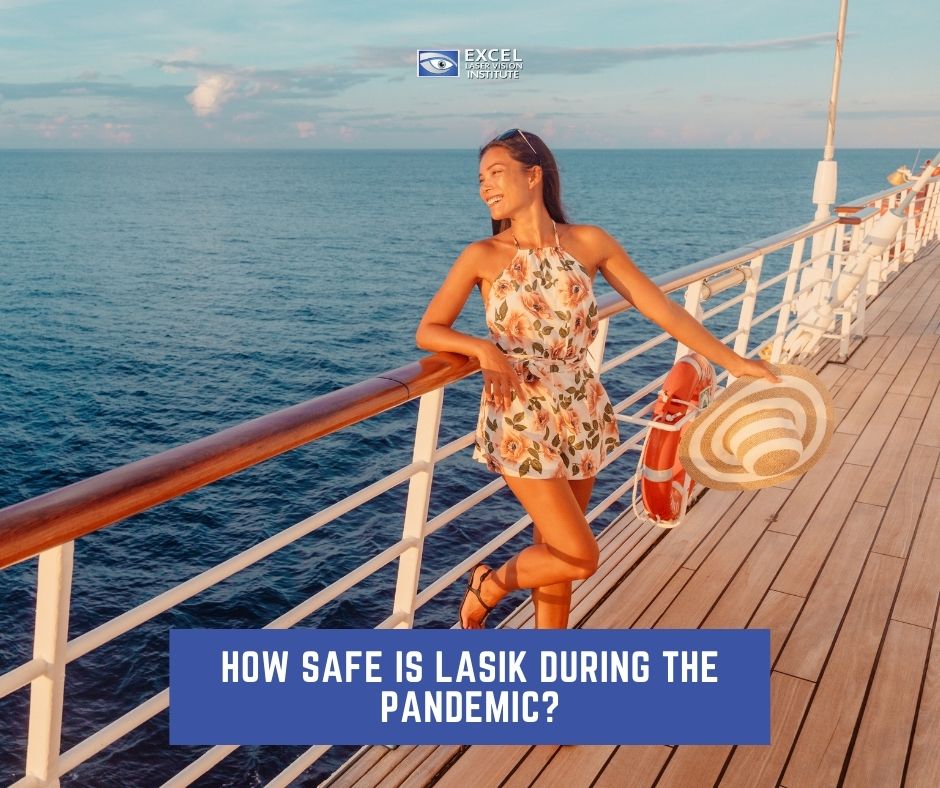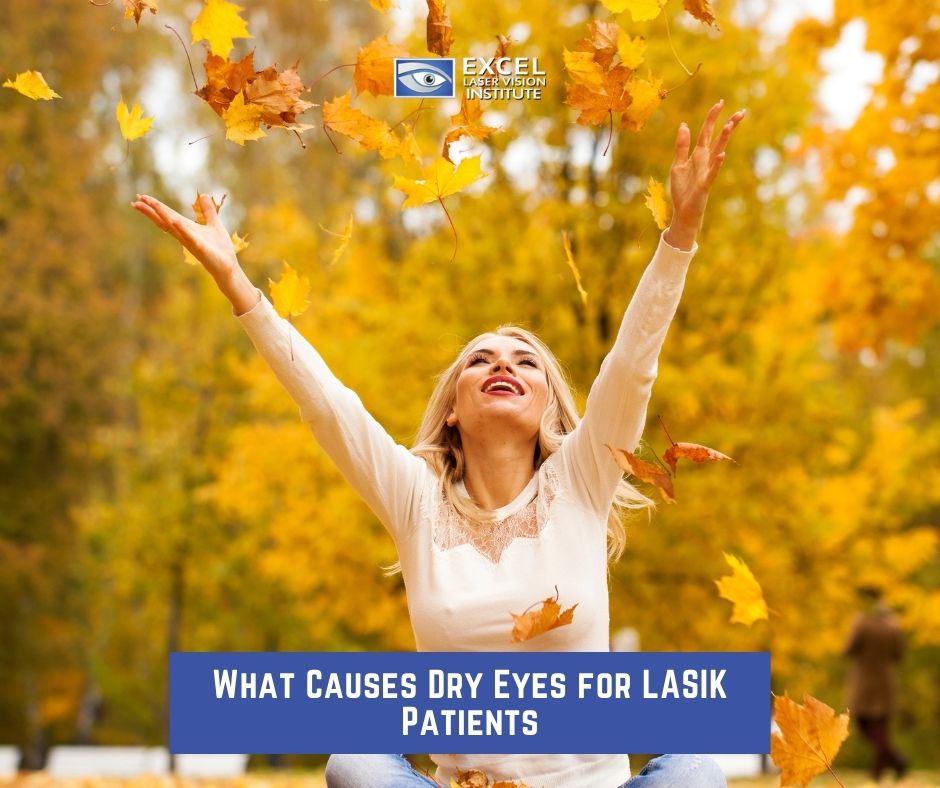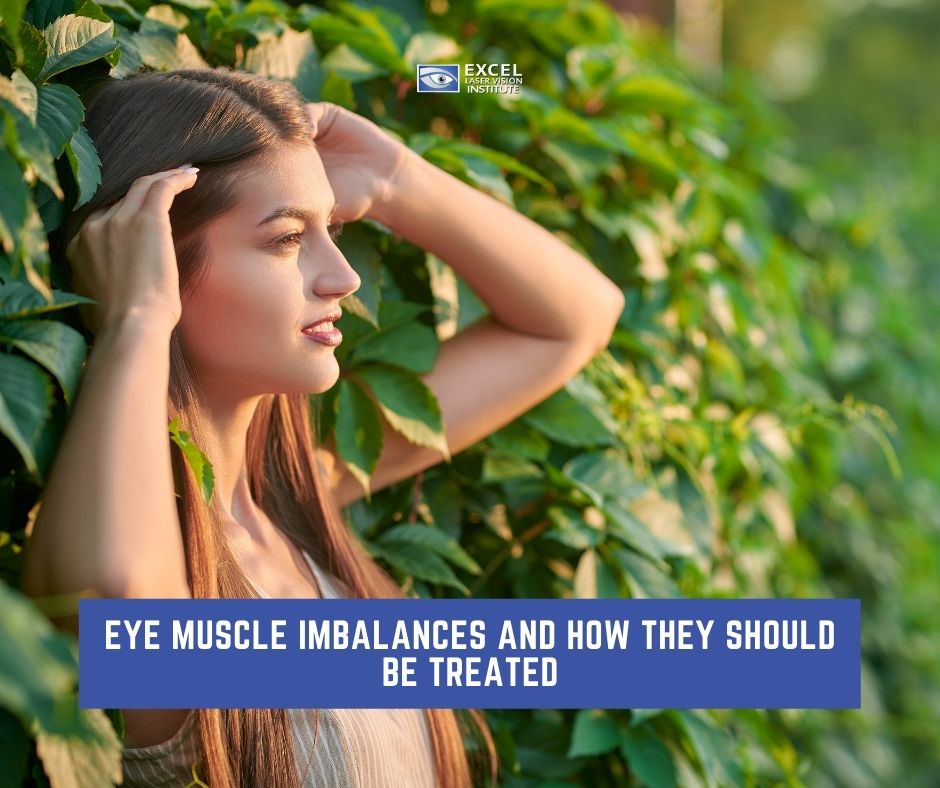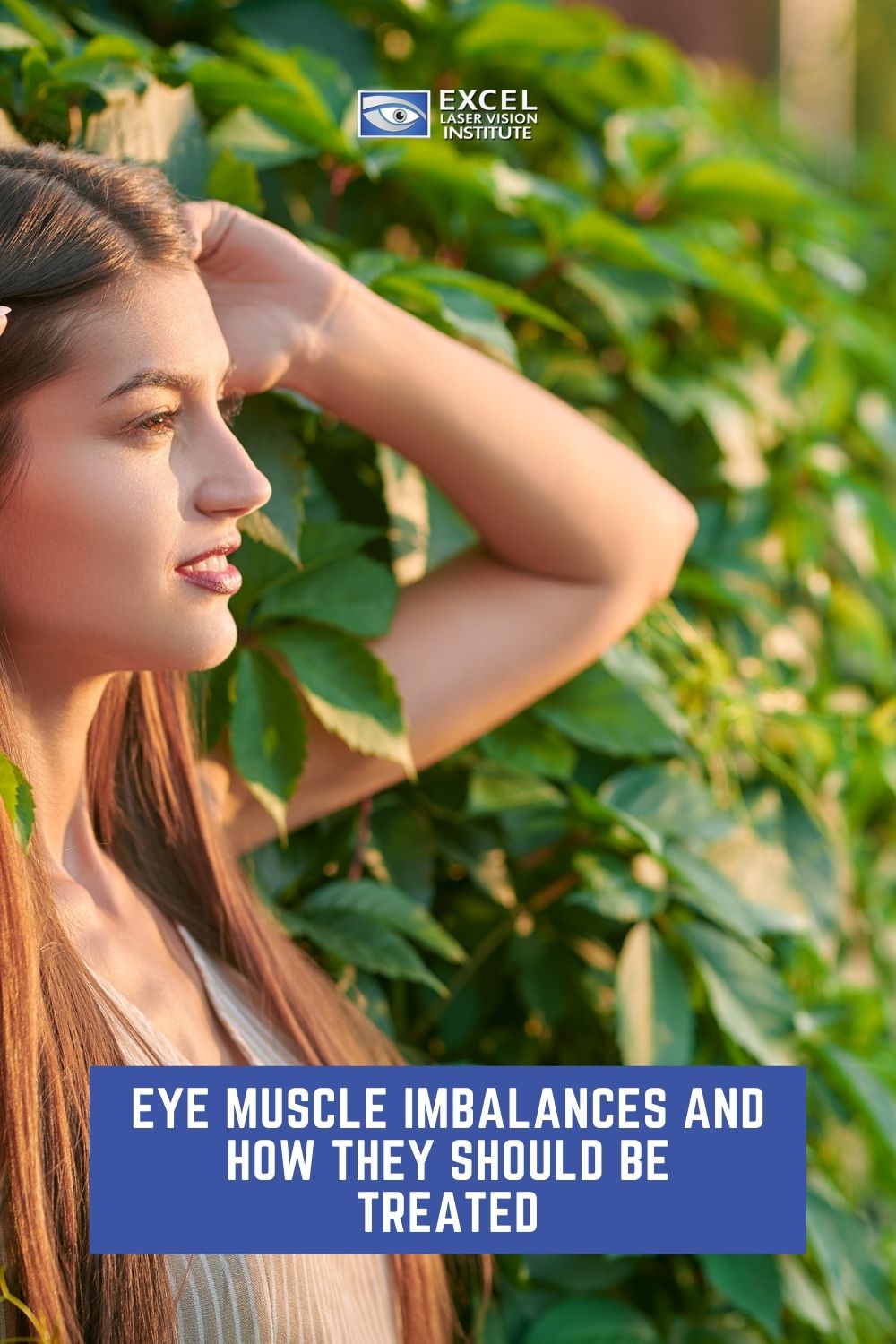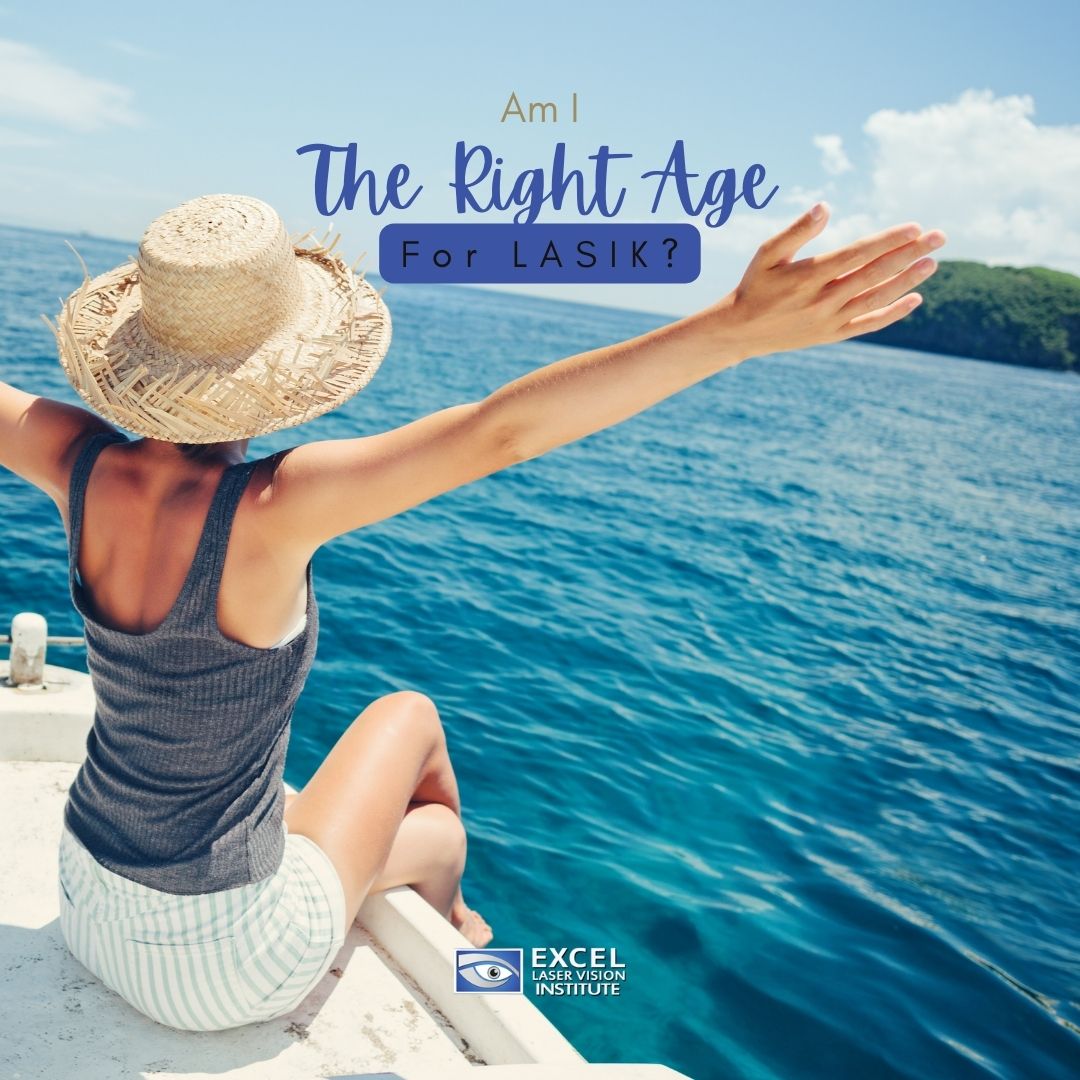
Am I The Right Age for LASIK?
You might have heard about the Goldilocks Effect—it’s a principle derived from the classic fairytale, “Goldilocks and the Three Bears.” Here, a young girl named Goldilocks breaks into a Papa Bear, Mama Bear, and Baby Bear’s house, eats their porridge, sits on their chairs, and sleeps on their bed. In the story, Goldilocks chooses everything the Baby Bear owns because everything was ‘just right.’
The Goldilocks Effect describes how people naturally gravitate towards things that are ‘just right.’ In astronomy, a Goldilocks planet is neither too near the star to be too hot, nor too far to be too cold, allowing living beings to survive. In economics, it refers to three pricing tiers (i.e., high-tier, mid-tier, and low-tier) that cater to all corners of the market. But, did you know that the Goldilocks Effect applies to corrective eye surgery too?
Optimally, you need to be at an age that’s ‘just right’ to get LASIK. That’s because your eye health changes as you age—this affects how well LASIK works.
Now, that doesn’t mean only people of a certain age range can get LASIK! It just means that others need to jump through more hoops to achieve the best results. You must understand how age is a factor in LASIK so you can know what to expect and calculate LASIK eye surgery costs.
What Age is Too Young?
Generally, LASIK isn’t recommended for people younger than 18-years old. Some doctors even recommended their patients wait until they’re 21! That’s because your eyes are still developing at this stage—your near-sightedness, far-sightedness, and astigmatism can still worsen until you reach your 20s. If you undergo LASIK too young, you risk fixing your vision before it’s set, making LASIK less effective.
As you probably already know, LASIK can be pretty expensive. LASIK in Los Angeles, for example, can get up to $4000 per eye! So, unless you’re ready to shell out that kind of money twice, it’s much better to just wait until your vision has stabilized.
What Age is Too Old?
Fortunately, there isn’t a real cut-off age for LASIK. You can even get LASIK well over 60 as long as you meet the necessary qualifications! According to WebMD, a study of 424 LASIK in their 40s to 60s showed that LASIK can still be effective even with the age difference, though they were more likely to get enhancements or repeat procedures.
However, take note that a couple of age-related eye issues will probably make things harder for you. It can affect how well LASIK works the first time you get it, or may even disqualify you from getting LASIK altogether. Here are some of the most common issues:
Presbyopia
Presbyopia is characterized by the gradual hardening of your eyes’ lenses. Because it’s less flexible, it can’t focus as well on close-up objects, making everything look blurry and out of focus. Symptoms of presbyopia include holding objects at an arm’s length to see them clearer, blurred vision, and frequent headaches after using your eyes too close up too long.
Presbyopia is a natural side effect of aging. It starts manifesting as early as your 40s.
Because LASIK only works on the cornea, it can’t do anything to stop presbyopia in your lens. You’ll probably still need glasses if you want to do anything close-up. However, some LASIK doctors address presbyopia by optimizing one eye for close vision and one eye for distant vision. You should discuss presbyopia options with your doctor first to see if they can work for you as this option doesn’t work for everyone.
Cataracts
Cataracts are cloudy areas in your eye that develop when proteins clump together. This prevents your eye from getting clear images, and when left untreated, can cause total blindness. This is commonly seen among older people—according to the World Health Organization, approximately 65.2 million of them around the world are affected by cataracts.
The prevention and treatment of cataracts are totally irrelevant to LASIK. If your vision is affected because of your cataract, LASIK isn’t going to do anything to help it. You’ll need to get your cataracts removed first before you can get LASIK surgery, and a separate surgery is needed to get cataracts fixed if you get them after LASIK.
Glaucoma
Glaucoma is a condition in which your eye’s optic nerve is damaged. It is caused by high pressure in your eye and can lead to total blindness. There is no cure for glaucoma, and you’ll really need to monitor your progress every few years to prevent it from progressing further.
LASIK works on the cornea of your eye, making it thinner. This, then, makes it harder to diagnose glaucoma in its early stages and monitor glaucoma in its moderate and severe stages. If you’re someone with glaucoma or are at high risk of glaucoma, we don’t recommend getting LASIK.
What Age is Just Right?
Many eye health experts agree that age 25 to 40 is the ideal age for LASIK. At this point, your prescription has stabilized and will likely remain consistent for years to come. Depending on your health (e.g., family history of diabetes or cardiovascular disease that are risk factors for cataracts) and eye health (e.g., dry eye syndrome, which disqualifies patients because of decreased tear production), most people at this age are likely to be approved for LASIK.
Conclusion
In short, Goldilocks should probably get LASIK when she’s around 25-40 years old, though she can get it as early as 18. This age range is ‘just right.’ Anything below 18 should not be considered.
Once Goldilocks is past 40, she’ll need to have her doctor screen her eyes for age-related eye conditions that can affect the effectiveness of LASIK. There’s still a huge chance she can get LASIK at this age, but she needs to be aware that the outcome may not be quite the same because of presbyopia, or that she needs to deal with more serious eye issues like cataracts and glaucoma first before thinking about getting LASIK.
Now, before anything else, Goldilocks needs to have a consultation with a professional LASIK surgeon. This article is only a guideline, so she’ll need more expert advice to see if she’s qualified for corrective eye surgery. A LASIK surgeon will take her general health, eye health, and age all into consideration and figure out the best way to achieve the perfect vision for her.
If you’re just like Goldilocks and need an expert opinion from a LASIK surgeon, then Dr. Ferzaad Moosa will be glad to help. He has performed LASIK in Los Angeles and Orange County for the past 23 years and is a certified member of the Board of Ophthalmology. And what’s more—his consultations are free of charge!
Contact his clinic today at (310) 905-8622 or visit his online consultation form here to get started.
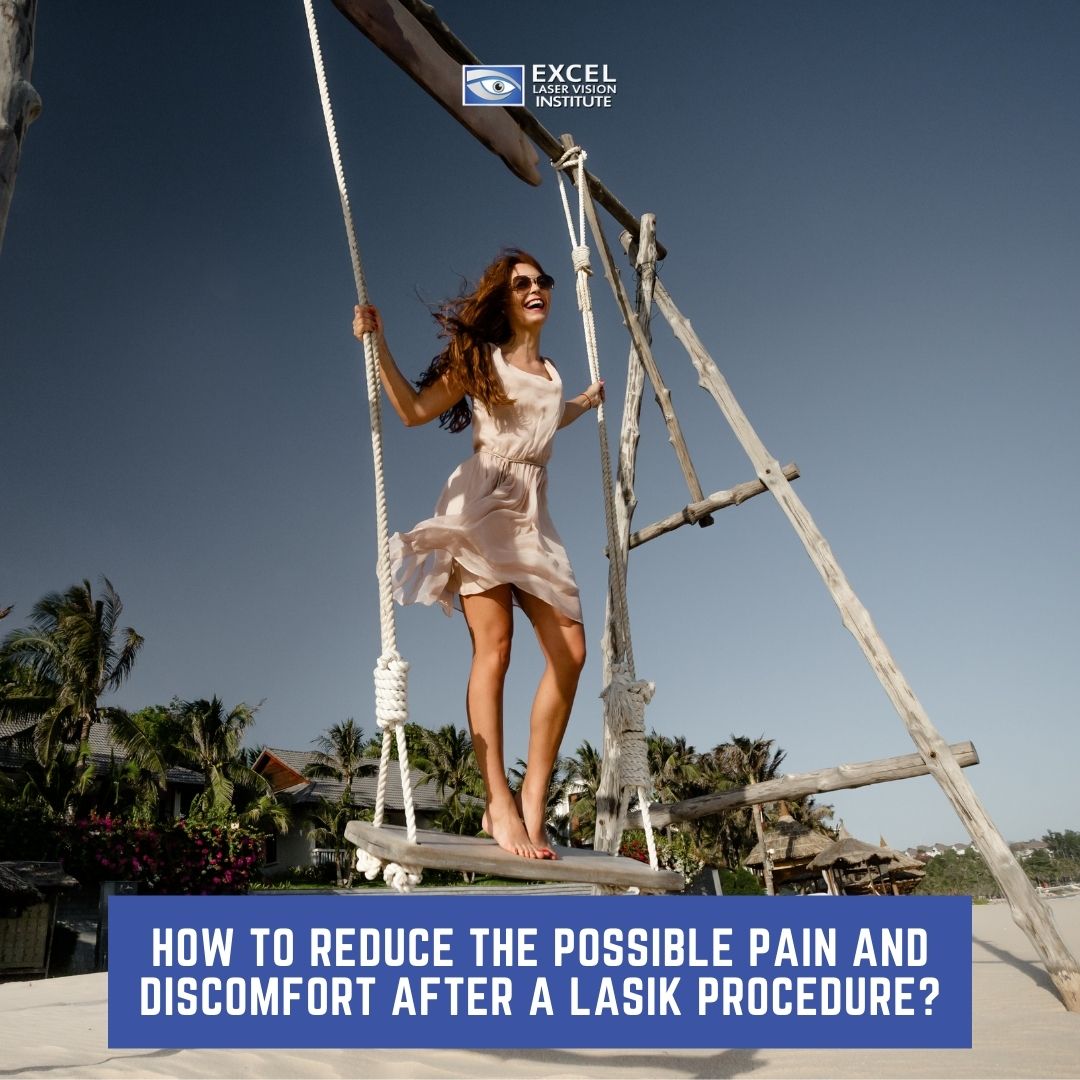
How To Reduce The Possible Pain and Discomfort After A LASIK Procedure?
Doctor Moosa, a Lasik Los Angeles surgeon, wants to make it perfectly clear that LASIK is the safest and most successful surgical procedure anyone can undergo. Overall, the recovery time after LASIK is very quick and comfortable, particularly when there are no complications during the surgery itself.
At Excel Laser Vision Institute, LASIK pain and discomfort is nevertheless a possible risk; however, we reduce that risk by utilizing only the most state-of-the-art laser vision correction technologies and techniques. Also, our LASIK eye surgeons use a thorough screening process that makes sure that only the most suitable candidates will be submitted to undergo the procedure.
At Excel Laser Vision Institute, you’ll find a cutting-edge LASIK Los Angeles eye care facility that always puts patient safety, comfort, and overall satisfaction above everything else.
Although when you get your corrective eye surgery done, our team will do everything possible to make sure you have a fast, comfortable recovery, you will have obligations as a patient, too. You will be handed a set of instructions on the dos and don’ts, and you have to follow it to a ‘T’ to ensure you make your healing process as free from stress and discomfort as possible.
What Does LASIK Surgery Involve?
As mentioned above, LASIK is the safest and most effective surgical procedure in the world. People who experience blurry vision because of farsightedness, nearsightedness, and astigmatism are suitable candidates for traditional LASIK, custom LASIK (which includes the use of wavefront mapping to correct higher-order aberrations), or bladeless LASIK (which is the use of a femtosecond laser rather than a blade microkeratome to make the corneal flap to get clear vision. Nonetheless, regardless of the LASIK treatment patients opt for, there are still those who report some level of discomfort after surgery.
What’s Basic Discomfort After LASIK Surgery?
Once you have found out the Lasik eye surgery cost and decide to go through the LASIK Los Angeles procedure, you should keep in mind what to expect. Fortunately, severe pain after LASIK surgery is very rare and should not be anticipated on the whole. Nonetheless, some minor discomfort and soreness can be expected. This discomfort could be burning or itchiness, and more commonly, patients experience a sensation of something foreign in their eyes.
Additionally, patients may feel sensitive to light and experience extreme tearing throughout the first few hours after surgery.
Your Harvard-trained LASIK surgeon, Dr. Ferzaad Moosa, may prescribe you a pain reliever to help alleviate this discomfort. Also, you may find using liquid tears handy in managing any burning, itching, or redness that you’re feeling. Overall, though, these unwanted side effects will lessen within three days, if not within a couple of hours after your surgery.
What’s Severe Pain After LASIK Surgery?
Even though it’s very rare, severe pain has been reported by some patients after LASIK surgery. If you ever experience severe pain, particularly if it’s followed by tearing, you should get in touch with your eye care clinic as soon as possible. You should be seen immediately so that an eye doctor can diagnose the reason for your pain. The most common reason for severe pain is flap distortion and other flap-related issues, which can be fixed.
One of the most prevalent causes of flap issues is a failure to follow post-operative instructions. For example, patients should not rub their eyes within a week of surgery, no matter how itchy or irritated their can might get. When you rub your eyes right after LASIK surgery, you could cause the corneal flap to become dislodged. Similarly, patients should stay away from streaming water coming into contact with the eyes, for instance, which can happen during a shower. When these instructions are not followed, it can lead to painful flap-related conditions.
Other Ways To Reduce Pain And Discomfort
Here are other methods you can alleviate discomfort immediately after your LASIK surgery.
Take A Nap Right After Surgery
When surgery is being performed, the eye surgeon applies numbing eye drops to the patient’s eyes. These drops stop any discomfort during the actual procedure. So, patients only feel pressure on the eye while the surgeon creates the corneal flap and the cornea tissue is reshaped. Nevertheless, when the numbing eye drops wear off, which usually happens within an hour after surgery, patients start to feel discomfort. The pain is normally its worst for a few hours after the numbing medication loses its effects.
While this is happening, eye doctors will recommend taking a nap. When you keep your eyes closed, the eyelid is halted from rubbing against the healing corneal flap. Plus, the eyes will probably not dry out when they are closed.
Despite the fact that patients may feel they can’t take a nap, particularly if the surgery is carried out in the morning, the calming medication that is distributed before surgery can lead to patients feeling drowsy after surgery. When patients take advantage of this fatigue, they can sleep through this time that’s linked to the highest level of discomfort.
Apply Lubricating Eye Drops
Even though most of the discomfort is gone by the next morning after surgery, some patients say they experience a dry, gritty feeling in their eyes. Applying lubricating eye drops can ease this kind of discomfort. Make sure to check the eye drop’s label to prevent overuse.
Take Pain Medication
Patients should be ready to take pain medications before any discomfort appears. Most patients take their first dose of medication instantly before or after surgery is completed. When this is done, the pain medication takes effect before the numbing eye drops wear off.
Patients should make it a point to take the second dose of pain medication on time instead of waiting for any pain to become apparent because discomfort is normally at its worst the day the surgery is performed, pain medication should be taken based on the label’s instructions for the first day after surgery.
At Excel Laser Vision Institute, LASIK eye surgery enhances your vision. Nevertheless, proper care has to be taken before and after the LASIK surgery. If you want to know more about LASIK Los Angeles surgery, please do not hesitate to call us at (866) 923-9235.
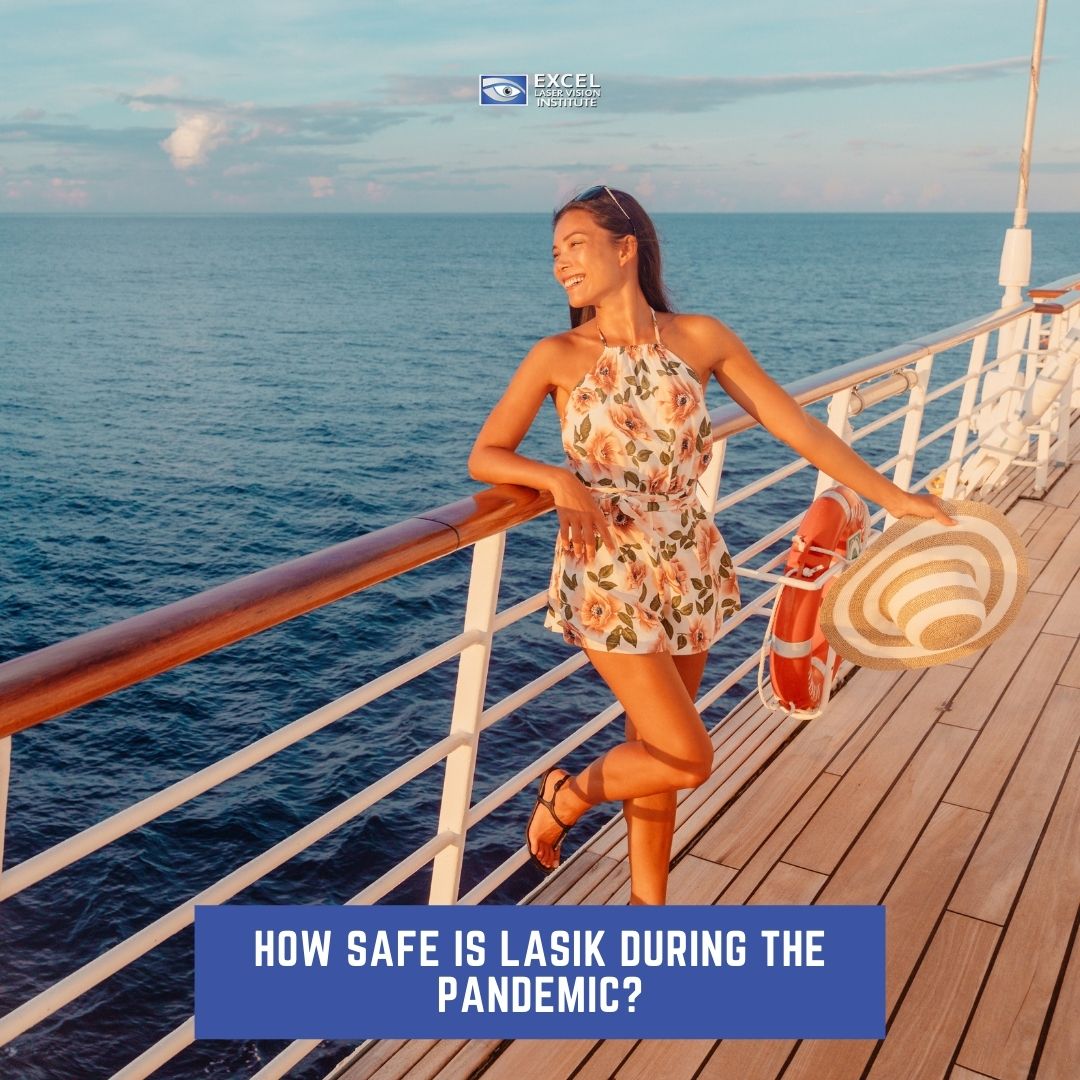
How Safe is LASIK During the Pandemic?
Sadly, many hospitals and medical practices have been adversely affected during the COVID-19 pandemic. This is because of the many changes in protocol. Therefore, several LASIK Los Angeles procedures have also been influenced during the pandemic.
LASIK eye surgery is not a medical emergency but rather a selective laser vision correction Los Angeles procedure. Globally, LASIK is the most popular surgery that corrects nearsightedness, farsightedness, and astigmatism.
How Does Covid-19 Affect The Eyes?
Several organs in the body, including the respiratory tract, have a mucous membrane lining. The membrane is vulnerable to coronavirus. Also, it lines the surface of the eye and inside of the eyelids and is referred to as the conjunctiva. The virus transmission via the conjunctiva is a rare condition but can result in conjunctivitis. Your eye looks pink when you have this condition, and the inner membrane (conjunctiva) gets inflamed.
Typically, general body symptoms correlated with the coronavirus are fatigue, fever, and a dry cough, and the primary method of transmission is infected droplets. Although the evidence of infection transmission through the eyes is not well studied nor documented, it is possible that the coronavirus may spread through the eyes.
Are There Any Risks?
Many people who are looking into LASIK surgery wonder if the procedure is safe during the COVID-19 pandemic. As a result of the increased risk of spreading infection through a contact lens, many individuals go for LASIK for corrective eye surgery.
LASIK surgery helps the patient eliminate the need for contact lenses or dealing with foggy glasses, particularly in health care professionals who have a high risk of acquiring the virus. The LASIK Los Angeles procedure is done safely and is carried out by professionals who take the necessary precautions.
How To Get Ready For LASIK Surgery During Covid-19?
Once you have found out the LASIK eye surgery cost, you have to take the right steps to get ready to treat your eyes with LASIK surgery. Think about the following actions to prepare for the surgery.
- Look for a skilled and experienced surgeon who carries out the surgery with the highest level of safety and care.
- The doctor performs a COVID-19 test before the surgery.
- If you qualify, you should get vaccinated for COVID-19.
- Before getting inside the center, you should be checked for body temperature and other symptoms such as cough. The surgery should not occur if a patient is diagnosed with any of the symptoms.
- The patient should practice social distancing and good hand hygiene. They should wear their mask.
- The patient should arrive relaxed and have eaten something to avoid having the surgery on an empty stomach.
How Has The COVID-19 Pandemic Increased LASIK Enthusiasm?
When the COVID-19 pandemic first hit, many people in the medical field thought it would significantly lower LASIK procedure volume, as in past economic crises. This was probably due to our knowledge that LASIK and refractive surgery are usually motivated by consumer sentiment and need a lot of unrestricted income. What came as a surprise to many industry experts, including medical equipment manufacturers, commercial LASIK operators, and independent physician LASIK center owners—procedure volume has been strong, with a renewed level of enthusiasm. Many LASIK surgeons in Los Angeles haven’t witnessed such enthusiastic growth since before the 2007-2008 crisis. Again, many say the cause is a perfect storm of many factors.
What Are The Three Main Factors?
The three primary factors that are responsible for this perfect storm of revival in LASIK enthusiasm are the following:
Financial motivators (which always play a huge part)
Lifestyle changes
Safety Concerns
Financial motivators: For the past several years, there has been an evident change to the millennial generation which makes up about 80 million of the world’s population who are seeking LASIK. Even though this is a challenging population to market to persistently, many meet the economic and clinical criteria for a good LASIK candidate.
Alas, the millennial demographic was evidently affected by the COVID-19 pandemic. In mid-MArch of 2020, many nonessential workers began to work from home. A majority of this group of potential refractive surgery patients did not lose their jobs. They did not leave their homes, their meetings with coworkers were carried out through Zoom, they had more screen time, and their workday became likely undetermined.
Since this group of individuals had nowhere to spend their disposable income due to lockdowns almost overnight, millennials had money to spend on medical procedures instead of clothes, salons, entertainment, travel, and gym memberships.
Lifestyle changes: Another factor that creates the perfect storm for refractive surgery volume to boost is the extra time at home, with people staring at the computer, phone, and tablet screens more. People soon started to figure out that looking at a screen all day causes an increase in eye fatigue, and this was even more apparent for individuals who wore contact lenses.
Safety concerns: The last but not the least motivator is safety. This means the possible viral transmission through hand-to-eye contact. At the beginning of the pandemic, many articles in the media indicated that the novel coronavirus could be passed through tears. Because of the media teaching us all about this, patients became very knowledgeable of the potential transmission route.
LASIK is an elective surgery since it does not treat any life-threatening disease. Moreover, similar to other surgeries, the risk of COVID-19 spread is not high because patients are not so close to surgeons. Many studies reveal that a LASIK procedure is safe if the surgeons follow all the necessary COVID-19 protocols and access personal protective equipment.
At Excel Laser Vision Institute, LASIK surgery enhances your vision and provides you with extra benefits. Nevertheless, proper care has to be taken before opting for LASIK surgery. If you want to know more about our COVID-19 protocols during the LASIK Los Angeles procedure, please do not hesitate to call us at (310) 905-8622.

Is Cataract Surgery Safe?
If you have cataracts, you may probably need cataract surgery in Orange County or Los Angeles. It’s a procedure that stores cataract-related vision loss. When your surgeon performs the corrective eye surgery, the clouded lens inside your eye gets replaced with a clear artificial lens. The procedure is entirely painless, and it typically takes around 15 minutes. Normally, it’s an outpatient procedure and you don’t have to stay overnight at the hospital according to the cataract surgeon in Los Angeles and Orange County.
At first, some patients think cataract surgery is scary. However, it’s one of the most risk-free and efficient vision surgeries around today. Every year, millions of cataract surgeries are carried out in the U.S., and many individuals have excellent results. The more senior a person is, the higher the potential need for cataract eye surgery since cataracts usually develop or worsen.
Based on facts from the National Institutes of Health (NIH), cataracts affect
Around 1 in 20 of people aged 50-54
An estimated half of people aged between 75 to 79
More than 2 in 3 people over the age of 80
What Does Cataract Surgery Involve?
The cataract eye surgeon in Orange County and Los Angeles will remove the cloudy lens inside your eye and replace it with a clear artificial lens during surgery. The device that’s used is called an intraocular lens, or IOL for short.
An IOL restores the clear vision you had before the cataracts developed. During any cataract removal in Los Angeles or Orange County, special safety measures are taken to ensure the patient is as pain-free and relaxed as possible. The most a patient will experience is a slight feeling of pressure, but this sensation isn’t painful.
A modern cataract surgery procedure will usually follow these actions:
The surgeon creates a small incision along the side of the cornea.
A high-frequency ultrasound device or laser is utilized to break up the cloudy lens into small fragments carefully.
The lens fragments are carefully removed from the eye using a suction device.
Once all the fragments have been removed, the surgeon puts in the IOL behind the pupil and the colored part of the eye, the iris, in the same place your natural lens used to be.
The incision doesn’t require any stitches to heal.
Your eye surgeon will put a protective shield over your eye to keep it safe during the early stages of recovery.
If you require surgery in both eyes, your cataract surgeon will typically wait for one to three weeks between procedures to allow the first eye to heal.
What Are The Two Different Options For Cataract Surgery?
When you ask for cataract eye surgery cost, you want to know what options you have available for cataract surgery. The most familiar type of cataract removal surgery is known as phacoemulsification, or phaco for short. A phacoemulsification procedure involves high-frequency ultrasound waves to break up the cloudy lens.
Currently, the phaco operation is performed with smaller incisions than ever before, so healing is faster with a much lower risk of complications.
Three main kinds of IOL can be implanted during cataract surgery:
Monofocal lenses – One of the most common options for most surgeries. These may still need the use of eyeglasses or reading glasses after the corrective eye surgery. If prescription glasses are required, your ophthalmologist will prescribe them about a month after surgery. Optionally, presbyopia can be treated by modifying the power of one of your monofocal IOLs to create a condition called monovision.
Accommodating lenses and multifocal lenses – Convenient for individuals who have presbyopia. These lenses can correct your reading vision without surrendering your distance vision. Both of these IOLs offer a huge range of vision after cataract surgery than traditional monofocal lenses.
Extracapsular surgery – rather than break up the cloudy lens with an ultrasound, an eye surgeon will take out the core in one piece, then the rest with a suction device. Extracapsular surgery consists of a longer incision, and antibiotic eye drops before the procedure. This type of cataract surgery procedure is usually only carried out in complicated cases.
Laser cataract surgery, or Refractive Laser-Assisted Cataract Surgery (ReLACS), is more contemporary option that utilizes more advanced technology.
Instead of ultrasound energy, a specialized laser is brought in to disrupt the existing cataract. The laser doesn’t need as much energy as an ultrasound, which can lower the risk of complications even more.
In some instances, laser surgery can also enhance visual outcomes.
Laser surgery is usually more pricey than standard phaco cataract surgery. During your cataract removal consultation, your eye surgeon can help you understand which procedure is the most suitable for your individual requirements.
How To Get Ready For Cataract Surgery?
Prior to your scheduled cataract surgery, your eye doctor will carry out a thorough eye exam to evaluate the overall health of your eyes and figure out if anything will prevent you from having surgery.
Also, the ophthalmologist will carry out a refraction test to find out if you’re nearsighted, farsighted, and/or astigmatic prior to surgery. Other measurements of your eyes will be taken to determine the shape of your eye and which type of implantable lens you’ll require.
Before your eye surgery, the medical team will advise you on what to expect before, during and after your procedure. This information will help you to make an informed decision about going forward with surgery.
Your eye doctor will discuss with you any medications and supplements you’re on. Some of these can boost your risk of complications and may need to be stopped for a short time
If you have any queries or concerns about cataract surgery, make sure you talk about them with your cataract surgeon and optometric physician before signing the “informed consent” documents that authorize surgery.
At Excel Laser Vision Institute, we have a team of experienced and dedicated staff easily answer all of your questions and put you at ease about your corrective eye surgery. We only use cutting-edge laser technology to perform cataract surgery, and other vision correction alternatives. Our Harvard-trained surgeon, Dr. Moosa, serves at our Orange County as well as at the Los Angeles offices. Once we assess your prescription and eye health, we can talk about which eye correction treatment is best for you, financing, and the next steps. Begin your journey towards a clear vision that eliminates your dependence on eyeglasses and contact lenses today.
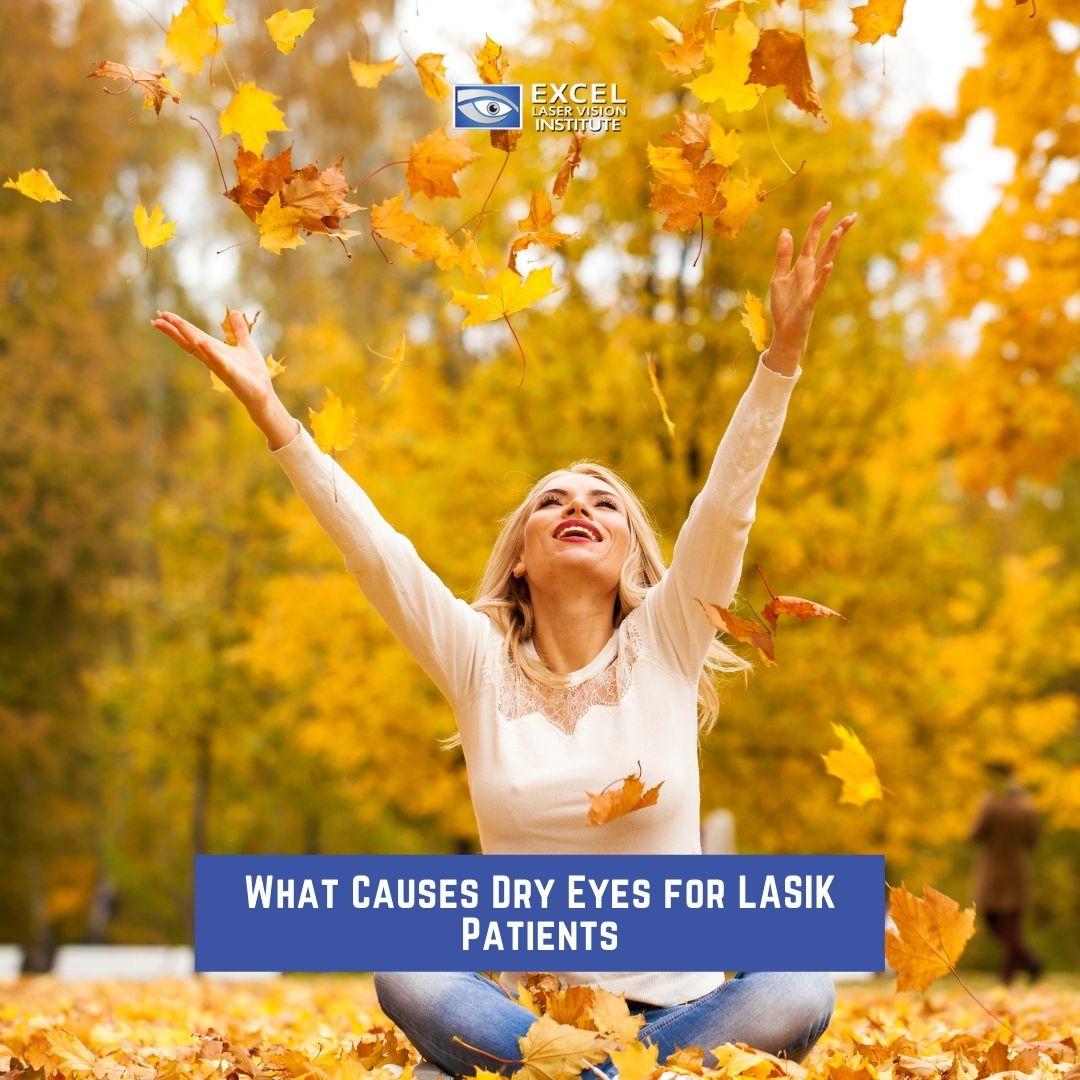
What Causes Dry Eyes for LASIK Patients
Patients who come to get LASIK in Los Angeles complaining of dry eyes are told that their eye condition is a chronic lack of lubrication and moisture on the eye’s surface. The eye needs a sufficient and consistent layer of tears on its surface to maintain eye health, remain comfortable, and help a person to see correctly.
Laser vision correction doctors in Los Angeles told us that tears wash the eye’s surface to keep it moist and clear away dust, debris, and microorganisms that could harm the cornea and cause an eye infection.
A normal tear film includes three crucial components:
An oily (lipid) component created by meibomian glands in the eyelids
A watery (aqueous) component is produced by lacrimal glands found behind the outer visible feature of the upper eyelids.
A mucous-like (mucin) component created by goblet cells in the conjunctiva that covers the white of the eye (sclera).
Each component of the tear film has an important role. For instance, tear lipids help keep the tear film from vaporizing too quickly and boost lubrication. Mucin helps anchor and spread the tears throughout the surface of the eye.
The outcome of dry eyes stretches from subtle but consistent eye irritation to serious inflammation. Also, it could cause scarring of the front surface of the eye.
Besides being known as dry eye syndrome, dry eye disease, or just “dry eye,” alternative medical terms used to characterize dry eyes include:
Keratitis sicca. Typically used to describe dryness and inflammation of the cornea.
Keratoconjunctivitis sicca. Used to talk about the dry eye that affects the cornea as well as the conjunctiva.
Dysfunctional tear syndrome. Used to stress that poor quality of tears can be as critical as low quantity.
What Causes Dry Eyes?
There are many causes of dry eyes:
Aging – Dry eye syndrome can happen at any age, but it becomes more common when you get older, particularly after age 50.
Menopause – Post-menopausal women are at higher risk of dry eyes than men of the same age.
Computer use – When working at a computer, using a smartphone or other portable digital device, we usually blink our eyes less completely and less frequently. As a result, there is greater tear evaporation and an increased risk of dry eye symptoms.
Contact lenses – It can be challenging to understand how much worse contact lenses can make dry eye issues. However, dry eyes are the main reason why people stop wearing contacts.
Indoor environment – Air conditioning, ceiling fans, and air heating systems all can lower indoor humidity. This can accelerate tear evaporation, leading to dry eye symptoms.
Outdoor environment – Dry climates, high altitudes, and dry or windy conditions amplify dry eye risks.
Air travel – The airflow in the cabins of airplanes is very dry and causes dry eye problems, particularly with frequent flyers.
Smoking – Besides dry eyes, smoking has been associated with critical eye issues, including macular degeneration, cataracts, and uveitis.
Health conditions – Specific diseases such as diabetes, thyroid-associated conditions, lupus, rheumatoid arthritis, and Sjogren’s syndrome can result in dry eye issues.
Medications – Many prescription and nonprescription medicines boost the risk of dry eye symptoms, including antidepressants, antihistamines, specific blood pressure medications such as beta-blockers or diuretics, and birth control pills.
Eyelid problems – Incomplete closure of the eyelids when blinking or sleeping, known as lagophthalmos), can result in severely dry eyes. Severe dryness can cause a corneal ulcer if left untreated. Lagophthalmos has many origins, including eye infections, natural aging, and nerve damage from trauma or cosmetic blepharoplasty.
LASIK – LASIK and other corneal refractive surgery can sometimes result in dry eyes. In most situations, however, dry eye discomfort after LASIK is short-term and clears up within a few weeks of the procedure. If you have dry eyes before your Los Angeles LASIK, your eye doctor may recommend dry eye treatment before your procedure to ensure your best corrective eye surgery results.
Wearing a mask – Many masks, particularly those worn to protect against the spread of COVID-19, can dry the eyes because they force air out the top of the mask and over the surface of the eye. When you wear glasses with a mask, the air can pass over the eyes even more.
Allergies – Allergies can result in dry eyes, and as mentioned above, taking antihistamines to relieve allergies can also result in dry eyes.
Dry Eye Symptoms
Symptoms and signs of dry eyes and dry eye syndrome are the following:
Sore eyes
Dryness sensation
Red eyes
Itchy eyes
Aching sensation
Heavy eyes
Fatigued eyes
Mucus in or around the eyes
Discomfort when wearing contact lenses
Burning sensation
Feeling like something is in your eye
Photophobia (light sensitivity)
Blurred vision
As strange as it may come across to some LASIK patients in Los Angeles, watery eyes can also be a symptom of dry eye syndrome.
The reason for this is dryness on the eye’s surface can sometimes bring about the overproduction of the watery part of your tears as a kind of protective mechanism. However, this “reflex tearing” does not remain on the eye long enough to repair the underlying dry eye condition.
Besides these symptoms, dry eyes can cause inflammation and sometimes permanent damage to the eye’s surface.
Also, dry eye syndrome can affect the results of LASIK and cataract surgery. So be sure that you don’t suffer from dry eyes when you ask for Lasik eye surgery cost.
Treatment And Prevention Of Dry Eyes
Dry eye syndrome is an ongoing and chronic condition. Revolving around its cause and severity, it may not be completely curable.
Nevertheless, in most situations, dry eyes can be managed successfully. Normally, treatment results in greater comfort, fewer dry eye symptoms, and, in some instances, sharper vision.
Here is a list of dry eye treatments that eye doctors typically use to lower the symptoms and signs of dry eyes. Your ophthalmologist may prescribe only one of these dry eye treatments or a mix of treatments, depending on the cause(s) and seriousness of your condition.
Artificial tears eye drops
Restasis
Xiidra
Steroid eye drops
Lacrisert
Punctal plugs
Meibomian gland expression
Warm compresses
LipiFlow
Intense pulsed light
Nutritional supplements
If you suffer from dry eyes, do not hesitate to get in touch with Excel Laser Vision Institute. These expertly trained LASIK doctors will help you recover from your dry eyes and also prepare those who wish to do LASIK after their dry eye conditions.

Why Should You Opt for Contoura Vision?
LASIK patients in Los Angeles are curious to find out more about Contoura Vision eye surgery. In a nutshell, it’s an advanced version of LASIK surgery that offers better results to patients who want to stop wearing their eyeglasses. Also, it’s a type of corrective eye surgery in which people who aren’t eligible to undergo LASIK surgery because of abnormalities in the cornea can also get excellent results with this advanced method.
What Is Contoura Vision?
Contoura Vision is also called topography-guided LASIK surgery, offered in one of our clinics in Los Angeles. It’s the most recent advancement in the elimination of eyewear by laser vision correction. Since LASIK & SMILE procedures only correct the power of the eyeglass, a Contoura procedure corrects the corneal irregularities and works on Visual Axis. This means a Contoura treatment provides sharper visual results, which LASIK and SMILE procedures are not possible.
Is Contoura Vision Eye Surgery A Better Option Than LASIK?
When considering LASIK eye surgery cost, both Los Angeles LASIK surgery and Contoura procedures are carried out to enhance nearsightedness, farsightedness, and astigmatism. However, there are fundamental disparities between these two types of technology, results, and scopes.
- Even though LASIK in Los Angeles phases out the need for eyeglasses or contact lenses, Contoura vision provides more visual acuity and improved refractive results in some instances. Contoura is a computer-aided topographic mapping method that pinpoints microscopic contours on the transparent front of the eye, such as the cornea.
- Contoura heals the anomalies of the cornea’s curvature and the optics. The treatment is based on the visual axis of the eye. Considering that, other LASIK procedures are focused on the eyeball.
- The contours of the cornea are produced by advanced computer analysis and are programmed into a specially designed laser. During this process, 22,000 points of the cornea are mapped. Once this is done, your eye doctor makes an individualized treatment plan for you. Since everyone’s eyes are different, each treatment plan is customized.
- This topography-guided LASIK surgery improves the abnormalities of the cornea. The quality of your vision is repaired so that the light can get into the eye readily and evenly. That’s why the vision is clear and sharp. This method is an advanced version of the standard corrections. After Contoura Vision, many patients can see more clearly even without eyeglasses than their previous version of vision correction. Also, there are surprisingly fewer problems with glare around the lights. Even studies have recorded a decrease in complaints by the patients about driving at night.
- Contoura vision correction provides impressive results. Among the patients who have received this treatment, 65% (rough estimate) have improvements better than 6/6. Moreover, there’s quicker healing and less tissue damage. In instances where people have had LASIK surgery earlier but are not satisfied with the results, also go for Contoura treatment.
This topography-guided LASIK surgery is the most breakthrough, safest, and latest eyewear removal and vision correction method. So definitely, Contoura Vision treatment is better than LASIK Surgery.
Wavelight Contoura In Eyes That Have Undergone LASIK Or In Eyes That Have Irregular Corneas
Wavelight Contoura can cure eyes that have already undergone LASIK and have irregularities in the cornea that have lowered the quality of vision and side effects.
These side effects consist of glare, halos, ghosting of images, and blurred vision. Patients who have these side effects may be candidates for a topography-guided laser vision enhancement to get rid of the irregularities in the cornea, which could be responsible for the symptoms. These would be considered off-label treatments, but they have been carried out globally, and clinical data have shown better outcomes in select patients. Plus, patients who have keratoconus or post LASIK ectasia may also be candidates for Contoura Vision treatment.
Brief From The FDA Trials With Wavelight Contoura
During a clinical trial that resulted in the FDA approval of Contoura Vision:
98% of people who had the procedure reported they would do it again.
30% of eyes had better vision without glasses or contacts after the procedure than when wearing glasses or contacts before the treatment.
The procedure lessened complaints of glare and reduced sensitivity to light, difficulty reading, and distress while driving at night compared with what patients were previously experiencing before surgery.
Although 20/20 is believed to be normal vision, and 92% of patients had 20/20 or better vision after their Contoura Vision procedure, 65% of patients obtained 20/16 vision, and 34% attained 20/12.5 (Eagles are considered to have 20/5 vision; hawks as good as 20/2.)
In about every patient, the result outperformed glasses and contact lenses for many patients and moved some patients nearer to “eagle eye” vision than ever thought possible.
Who Is Eligible For Contoura Vision Treatment?
Contoura method is a technique that has the green light from the US FDA. It provides exceptional results compared to LASIK and SMILE. That’s why it’s recommended by ophthalmologists and is swiftly achieving lots of attention with patients. Here are the eligibility criteria for patients to undergo this process.
The patient must be above 18 years
The patient should have a consistent prescription for eyewear
The patient must obtain <3D cyl. Power
The patient’s cornea should not be thin
The patient’s eye power should not be spherical >8D
The patient should not be experiencing any significant corneal pathology.
If you want to live a life free from eyeglasses and contact lenses, then talk to an eye care professional at Excel Laser Vision Institute, a reputable LASIK clinic in Los Angeles. Contoura Vision eye surgery can treat many refractive errors and ensure that your vision is in top shape. Contoura professionals will conduct a thorough evaluation of your eye health and condition before determining if you are eligible for Contoura Vision eye surgery or a similar procedure.
Call Excel Laser Vision Institute at (888) 957-3255. Our team of staff is highly trained and experienced in all LASIK eye procedures. Also, we have Dr. Moosa, a well-esteemed LASIK/Contoura surgeon that has a Harvard education and vast experience working with various prescription levels. Dr. Moosa has helped many individuals attain their vision goals. Visit our website https://www.exceleye.com/ or any of our clinics to learn more.
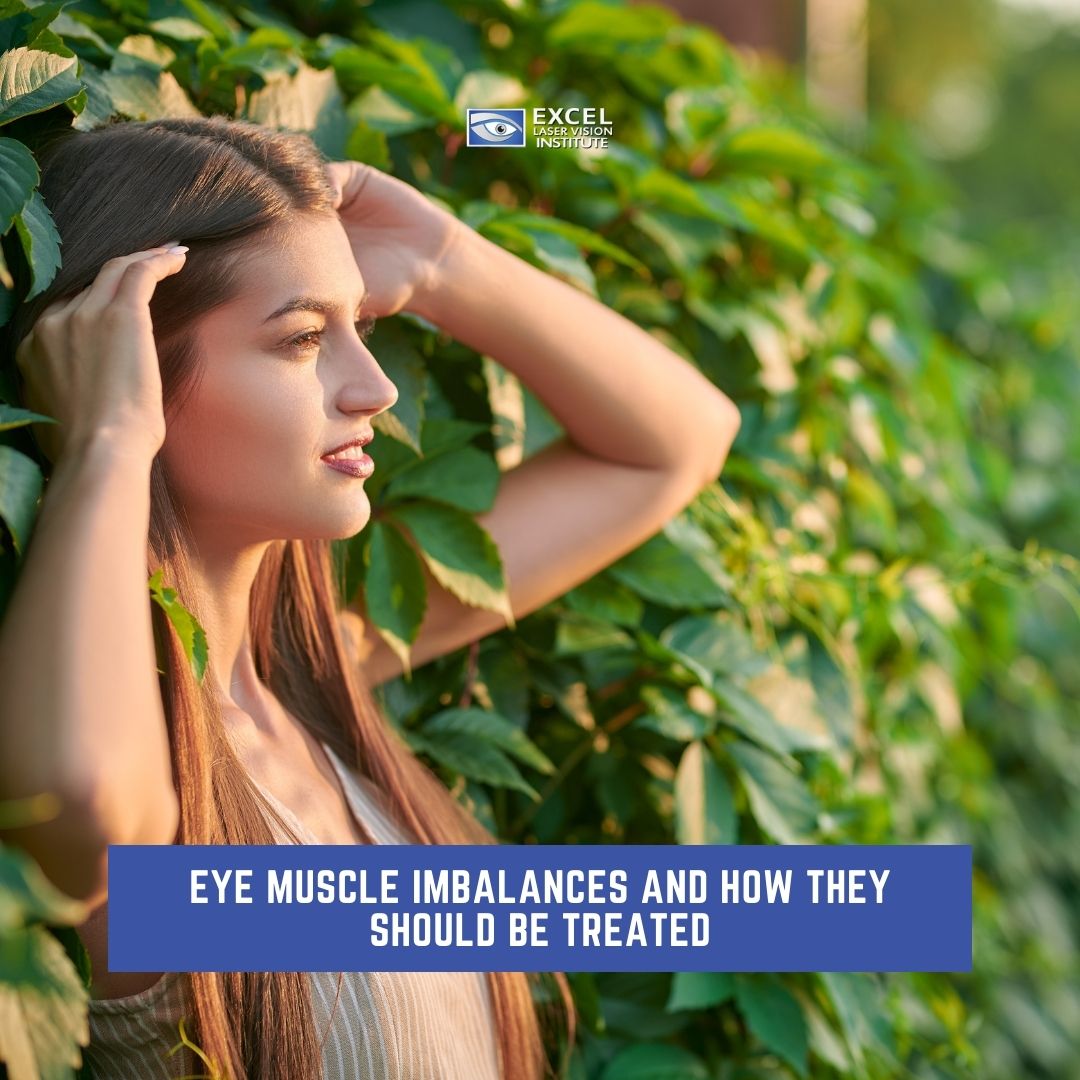
Eye Muscle Imbalances And How They Should Be Treated
Doctor Moosa, a LASIK specialist in Los Angeles, educates us on the fact that eye muscle imbalance is a highly complex disorder. A common form of eye imbalance is strabismus, a visual issue where the eyes are lined up correctly and point in various directions. One eye could look dead-on, while the other eye turns inward, outward, upward, or downward. The eye turn may be constant, or it could reappear. The eye that is straight and which is misaligned may change or alter.
Normally children experience strabismus. As a matter of fact, a LASIK eye surgery expert informs us that 4 percent of all children in the United States have strabismus. However, strabismus is not only prevalent in children because adults are also susceptible to it. Plus, it can be genetic; yet, many people with strabismus do not have any relatives with the issue.
What Is Strabismus?
It is a shortcoming in eye muscles that leads to horizontal or vertical misalignment. Typically, six muscles move the eye, and the different types of strabismus go hand in hand with the various muscles involved.
The body moves these six muscles around to avoid the eyes from simultaneously concentrating on one object, so two disputing images are transmitted to the brain at the same time. Both eyes look at the same object and send only one image to the brain in normal circumstances.
A child with strabismus and maybe needing corrective eye surgery is usually taught to ignore or suppress the image recognized by the misaligned eye. The normal eye becomes predominant, while the misaligned eye evolves less vision due to absence of use. This vision reduction in one eye is amblyopia, and about 50% of children with strabismus develop amblyopia.
What Is Lazy Eye?
The LASIK eye doctors in Los Angeles inform us that the medical term for ‘lazy eye’ is amblyopia, a condition in which the eyes are misaligned or don’t work well together.
The causes of amblyopia can vary, and most of all, each cause needs different treatment:
Refractive amblyopia: A condition that affects one eye’s vision that makes the prescription a lot stronger than the other. Eventually, the dominant eye will carry out more work, resulting in the weaker eye falling out of alignment. Fortunately, refractive vision issues can be straightened out with LASIK or laser vision correction in Los Angeles.
Strabismus amblyopia: Is an imbalance in the muscles that lay out the eyes. One eye seems to falter behind the other, and in the long run, this results in a weakened vision in the eye that’s faltering.
Deprivation amblyopia: Also known as “obstructed amblyopia,” is when one eye’s vision becomes obstructed, usually by cataracts or another condition. Ultimately, the brain begins to support the other eye. This form of lazy eye is most common very early in life and may occur in elderly people because of age-related vision issues.
Can You Correct A Lazy Eye With LASIK?
LASIK is well known for being a laser eye surgery that enhances vision by fixing refractive vision problems. LASIK can remedy a lazy eye, but only when the root of the issue is a discrepancy in the refractive error between both eyes (refractive amblyopia). LASIK surgery can lead to a similar prescription in your eyes, lowering the issues that come with having one eye working like fury than the other.
Although LASIK isn’t a surefire fix for refractive amblyopia, it is a significant determinant in recovering from the condition. LASIK works well together with other amblyopia therapies that help the brain to begin to comprehend the improved vision in your lazy eye.
If amblyopia results from misaligned/crossed eyes or obstructed vision, laser eye surgery is going to do nothing to improve the condition. Also, LASIK can’t be carried out on minors, so it is not ideal when amblyopia affects children.
Can You Even Correct A Lazy Eye?
Although LASIK can help treat refractive amblyopia, it can’t be of any benefit with other types of lazy eye and cannot treat children. Therefore, there are other ways of treating different types of amblyopia. These treatments are applied on their own and, in some situations, with LASIK.
Most of the time, treatments involve making the vision the same in both eyes so that the brain is forced to use the lazy eye. Occasionally, this means improving the lazy eye’s vision with a more powerful glasses’ lens prescription than in the other eye. For some cases, this means blocking the “good” eye with either an eyepatch or eye drops to obstruct vision, coercing the brain to use the lazy eye.
Eye exercises are also an excellent way to manage a lazy eye. These usually involve the patient focusing on small or fixed objects or words for long periods, making the brain work in conjunction with the eyes.
Another factor is dietary habits since the proper vitamins can help with brain activity and eyesight. Remember that all of these treatments should only be done under your doctor’s guidance.
If you want to discover more about how LASIK can help your eyesight and perhaps correct eye muscle imbalances, contact Excel Laser Vision Institute at (888) 957-3255 or visit our website. Our expert team and highly reputable LASIK surgeon, Dr. Moosa, are happy and willing to answer all your questions.

Getting Blurry Vision? Know More About IOL Here
If you are age 60 and above and have noticed a decline in your vision, it could be time to get in touch with a surgeon at Excel Laser Vision Institute, a cataract and LASIK clinic in Los Angeles. Doctor Moosa, our LASIK eye surgery doctor, says that it is very normal for people at this age to experience blurry or even cloudy vision, which may be a tell-tale sign that they have cataracts. It is a typical condition in older adults and can be treated by your eye doctor in Los Angeles through laser vision correction.

What Are The Symptoms Of Cataracts?
Cataracts usually start off slowly. As a matter of fact, eye specialists at a cataract and LASIK clinic in Los Angeles say that you may not know you have them until they begin to block light. After that, you may notice the following:
- Vision that is cloudy, blurry, foggy, or filmy
- Nearsightedness (in older people)
- Changes in the way you see color
- Complications driving at night (glare from oncoming headlights, for example)
- Problems with glare during the day
- Double vision in the affected eye
- Issues with eyeglasses or contact lenses not working well
What Causes Cataracts?
Cataracts happen when protein accumulates in the lens of your eye and makes it cloudy. This prevents light from passing through clearly. As a result of this, a person may experience loss of eyesight. Also, there are many types of cataracts.
How Your Eye Functions
Your eye has a lens, which is a window made of clear protein and water that sits behind the pupil. The lens focuses light onto the retina, which transmits it to your brain.
As a person starts to get older, the proteins alter, and parts of your lens turn cloudy. This is referred to as a cataract. It can make objects appear blurry or give them a brownish tint.
Cataracts are the main cause of blindness, particularly in the elderly. However, they can be corrected through cataract surgery that is performed over 2 million times a year in the United States.
What Is An Intraocular Lens Implant?
If you are considering corrective eye surgery at a cataract and LASIK center in Los Angeles, it may be a good idea to understand what an intraocular lens implant is. Essentially, an intraocular lens implant (IOL) is an artificial replacement for the lens of your eye. It forms part of the surgery to treat cataracts. An intraocular lens implant, or IOL, consists of clear plastic material, and it is around a third the size of a dime. There are various different types:
Monofocal IOL
This is the most common intraocular lens implant. It is very different from your natural lens, which can stretch or bend to help your eye focus since this implant stays focused at one fixed distance. If yours focuses at a distance, you might be able to see things far away but need glasses to read or see close up.
Multifocal implant
This implant is similar to glasses with bifocal or progressive lenses because this lens has areas that help you see things at different distances. It could take several months for your brain to get used to so your vision appears natural. Keep in mind that it can sometimes cause more halos or glare around lights than a monofocal lens.
Accommodating IOL
This is a more flexible option, especially if you are looking for a lens that mimics a lot like your natural lens and focuses at more than one distance. It can prevent you from requiring reading glasses.
Toric IOL: Your eye surgeon may recommend this if you have astigmatism or a cornea that’s more football-shaped than round. This can make vision blurry all over, not just close up or far away. This lens reduces astigmatism, so you won’t need glasses to correct it after your surgery.
How Is the Surgery Performed?
If you have a cataract, you should visit an ophthalmologist. This doctor specializes in cataract surgery and other issues requiring surgery. They will most likely let you know that it is recommended to remove the cataract until it begins to affect your daily life. They can perform the surgery at a hospital or an outpatient clinic.
To prepare you for surgery, your doctor will do the following:
- Measure your eye. This will help them select the right implant for you.
- Give you medicated eye drops to take for a few days ahead of time
- Ask you to stop taking some medicines or to avoid wearing contact lenses for several days beforehand
On the day of surgery, they will tell you to do the following:
- Numb your eye
- Administer a drug to help you relax. You may see light during the procedure, but you should feel nothing or only gentle pressure.
- Create a tiny cut through your cornea to get to the lens
- Break the lens up into pieces and remove it bit by bit
- Put the implant in place.
- Let the cut heal by itself. You will not have any stitches.
You can usually go home in less than an hour, but it is important that someone else drives you.
Follow-Up Care
It takes around 8 to 12 weeks to heal fully. During that time:
- Keep your eye protected with sunglasses as much as possible, and sleep with your eye shield at night.
- Don’t rub or press your eye, even if you have the urge to scratch it or you notice the eye begins to ooze a bit of fluid.
- Take the medicated eye drops your doctor prescribes. You may have to use them for several weeks to help your eye heal.
- Avoid most exercise or heavy lifting. The doctor will advise you when you can do those things again.
If you want to learn more about intraocular lens (IOL) implants, contact Excel Laser Vision Institute at (888) 957-3255 or visit our website. Our expert team and well-esteemed cataract and LASIK surgeon, Dr. Moosa, is ready to answer all your questions.
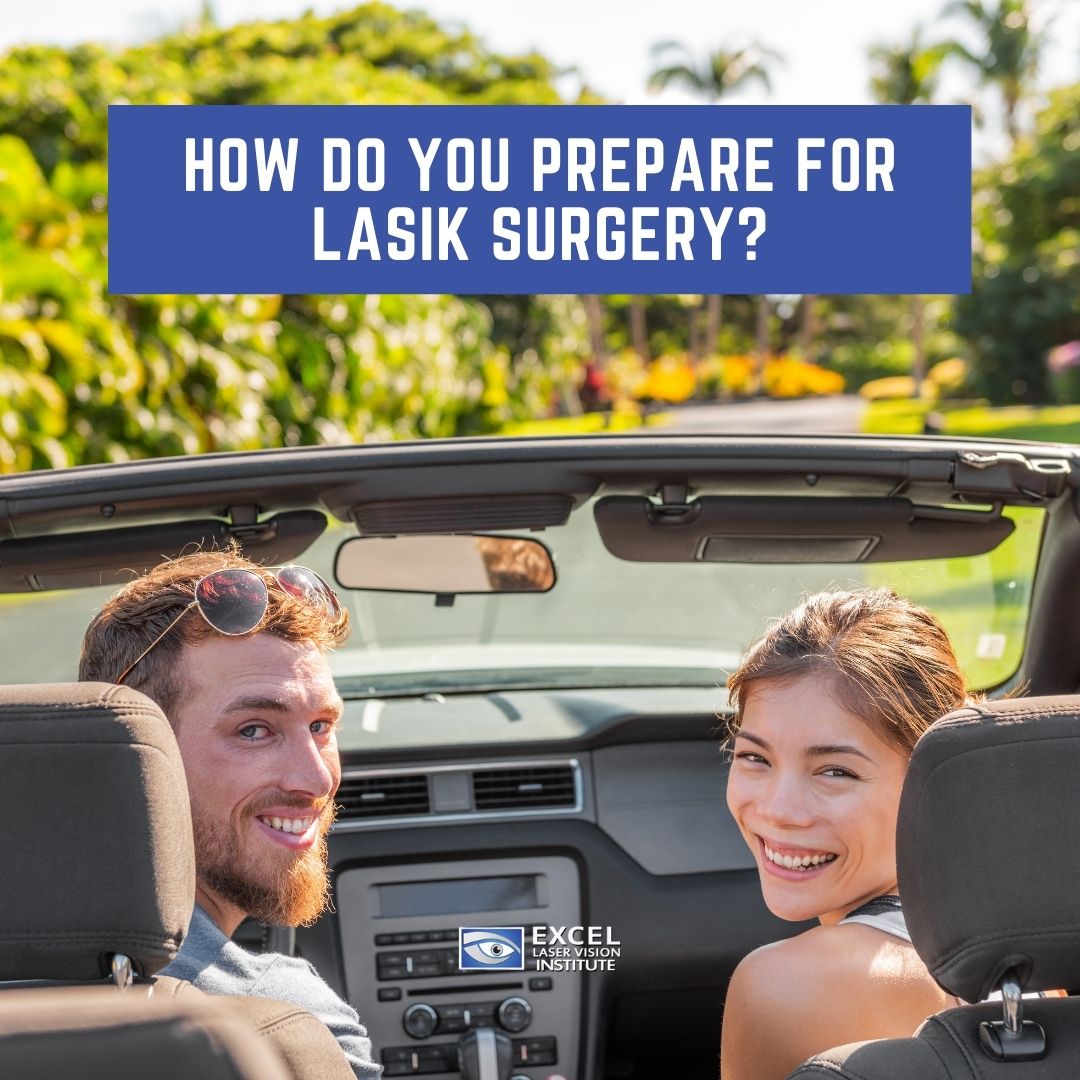
How Do You Prepare For LASIK Surgery?
The most challenging step that you will take before having LASIK in Los Angeles is finding the appropriate clinic with the most sophisticated technology and the best Lasik eye surgery. This is the most crucial aspect that ascertains the quality of the surgery you are going to undergo.
Also, it really helps to establish how smooth your recovery will go and guarantees you achieve optimal vision from laser vision correction.
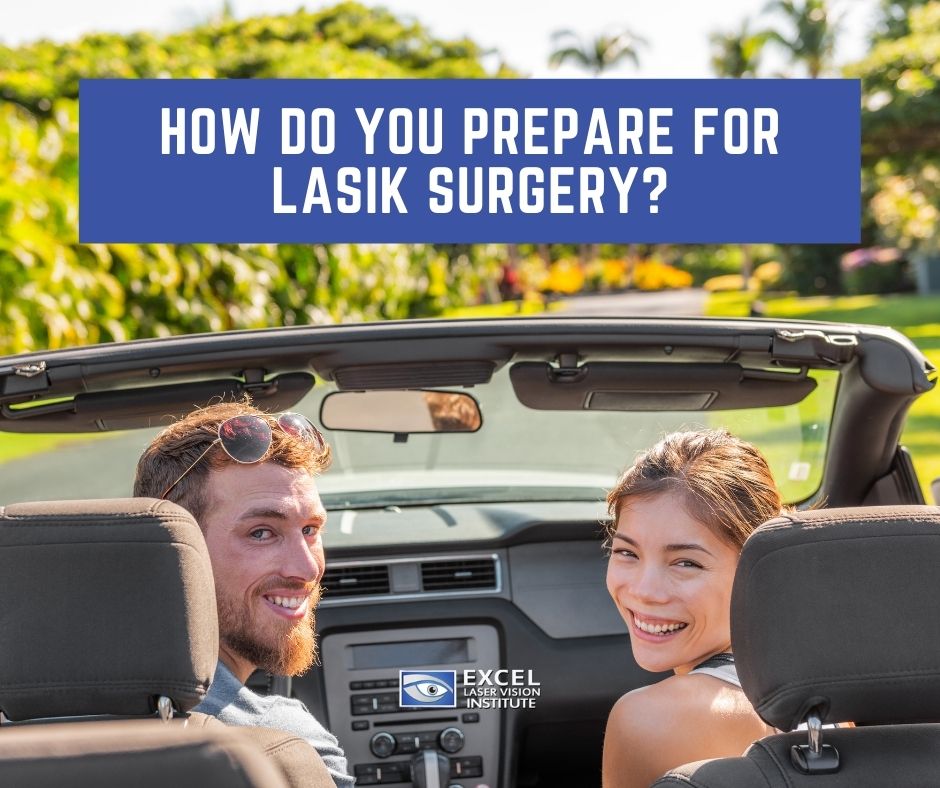
When you have chosen LASIK for your corrective eye surgery, your eye doctor has conducted a baseline evaluation to find out if you are a good candidate for the procedure, then you can prepare for the surgery.
Doctor Moosa, the eye surgeon at Excel Laser Vision Institute, believes that if a patient prepares well for surgery, there is a higher probability they will be in a better condition for the procedure.
The LASIK clinic has several years of experience preparing patients for LASIK surgery under their belts, and they have some tips below to help you prepare for the procedure.
Take a look at the best way to be ready for LASIK surgery here:
Drink Plenty Of Water Before The Procedure
This tip is true for any procedure you go through. It is crucial that you drink more water unless your doctor tells you not to. When you undergo a LASIK procedure, you are doing more good than harm by stepping up your water intake. Increasing your water intake will help you to maintain hydration and encourage the healing process after your procedure.
The most common side effect of LASIK eye surgery is temporary dry eye. Drinking more water is an easy way to keep your eyes lubricated.
If you have already booked your LASIK procedure, do not want any longer to start increasing your water intake. You want to set a target of at least 8 eight-ounce glasses of water per day. It sounds like a massive of water to consume, but it is the basic minimum you should be drinking to maintain sufficient hydration.
If you are determined to drink more water but you are apprehensive about keeping track, there are apps available to help you oversee your water intake, let you know when it is time to fill up your glass, or help to calculate your body’s optimal water intake.
If you have any questions or concerns regarding your water intake before your LASIK procedure, do not hesitate to talk to Dr. Ferzaad Moosa and his experienced team.
Stop Wearing Contact Lenses When Instructed To
Before your LASIK procedure, your eye surgeon will advise you to stop contact lens use for at least one week for soft contacts and one month for hard contacts. The reason for discontinuing contacts prior to LASIK surgery is because wearing contacts can change the shape of your cornea and affect the results of your LASIK procedure.
Also, it is a good idea to give your eyes a rest, i.e., switch to eyeglasses for a while before your surgery.
When to stop wearing contacts is a significant conversation that you should have with your eye doctor. Your eye doctor will recommend how long before your procedure you should stop using contact lens based on your eye evaluation.
Get A Comfortable Outfit Prepared
Your outfit on the day of your LASIK surgery matters a lot. You will be awake during the LASIK procedure, so it is essential to be wearing comfortable clothing. Choose loose clothes that you can easily take off when you get back home.
Comfortable clothing such as leggings, athletic shorts, a zipper hoodie, or a soft t-shirt is suitable. When you receive LASIK, the first thing you want to do when you arrive home is sleep. It is simpler to rest at home when you are wearing clothes that you can rest in or easily get out of.
Plus, try not to wear clothes that produce lint. So, avoid clothing items such as faux fur or anything that could be shed. This is important because you keep contaminants out of the operating room. LASIK is a safe and sterile procedure, so make the extra effort to avoid bringing unnecessary contaminants.
Designate A Driver
During LASIK, the patient is not put to sleep. Instead of this, numbing eye drops are put in the eyes. If you are nervous about the procedure, you may get medication to help you relax.
The purpose of numbing eye drops is to make certain you don’t feel any pain when undergoing LASIK. These drops wear off after a few hours once the procedure is over.
Even though the patient is not put under during LASIK, you are not allowed to drive yourself home afterward. You should have a family member or friend drive you to the procedure and back home again.
Most LASIK patients are told by their eye doctors that they are good to drive during their follow-up appointment the next day. When you get cleared by your eye doctor, then you can safely be back behind the wheel.
Go Through Your Paperwork
The team at Excel Institute will give you a LASIK consent form before you go for your procedure. You should read your paperwork thoroughly, and ask any questions you have regarding your LASIK procedure. You should have peace of mind that you are making an informed decision about the procedure ahead.
On The Big Day, Do Not Wear Any Perfume, Lotions, Or Makeup
On the day of your LASIK procedure, do not apply heavy makeup, perfumes, or lotions. If possible, go as bare as you can. You should take a shower and make sure your face is clean of any contaminants the morning of the LASIK. Do not apply any perfumes or hand or face lotions either since this can make your skin greasy. It is best to go to your LASIK procedure clean and prepared, and usually, greasy lotions tend to get into the eyes. It is always a good idea to play it safe before you have your LASIK surgery.
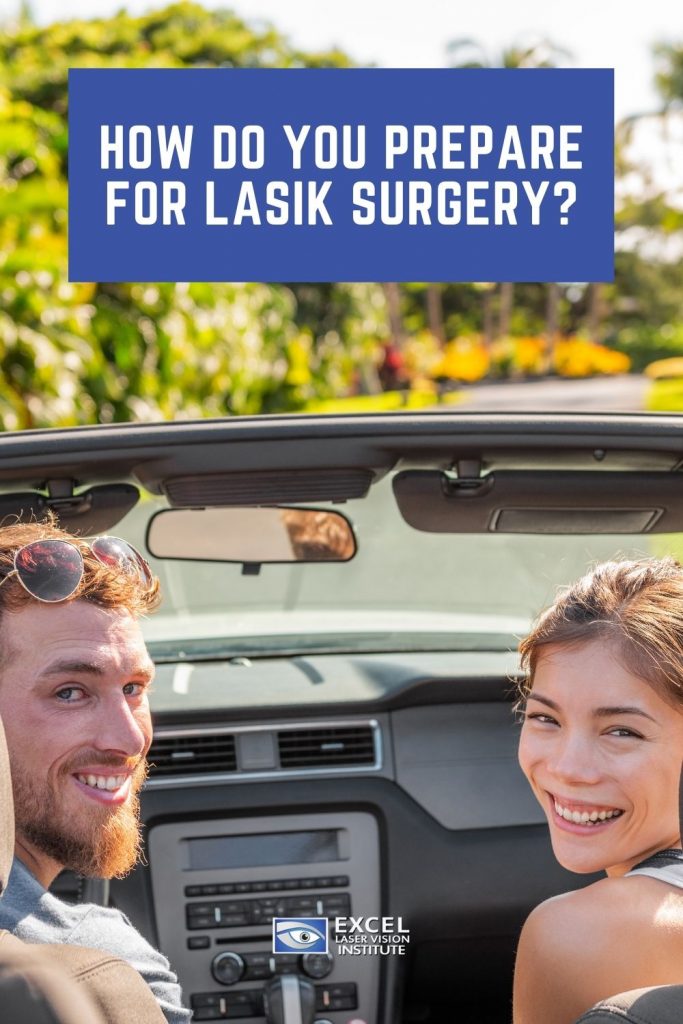
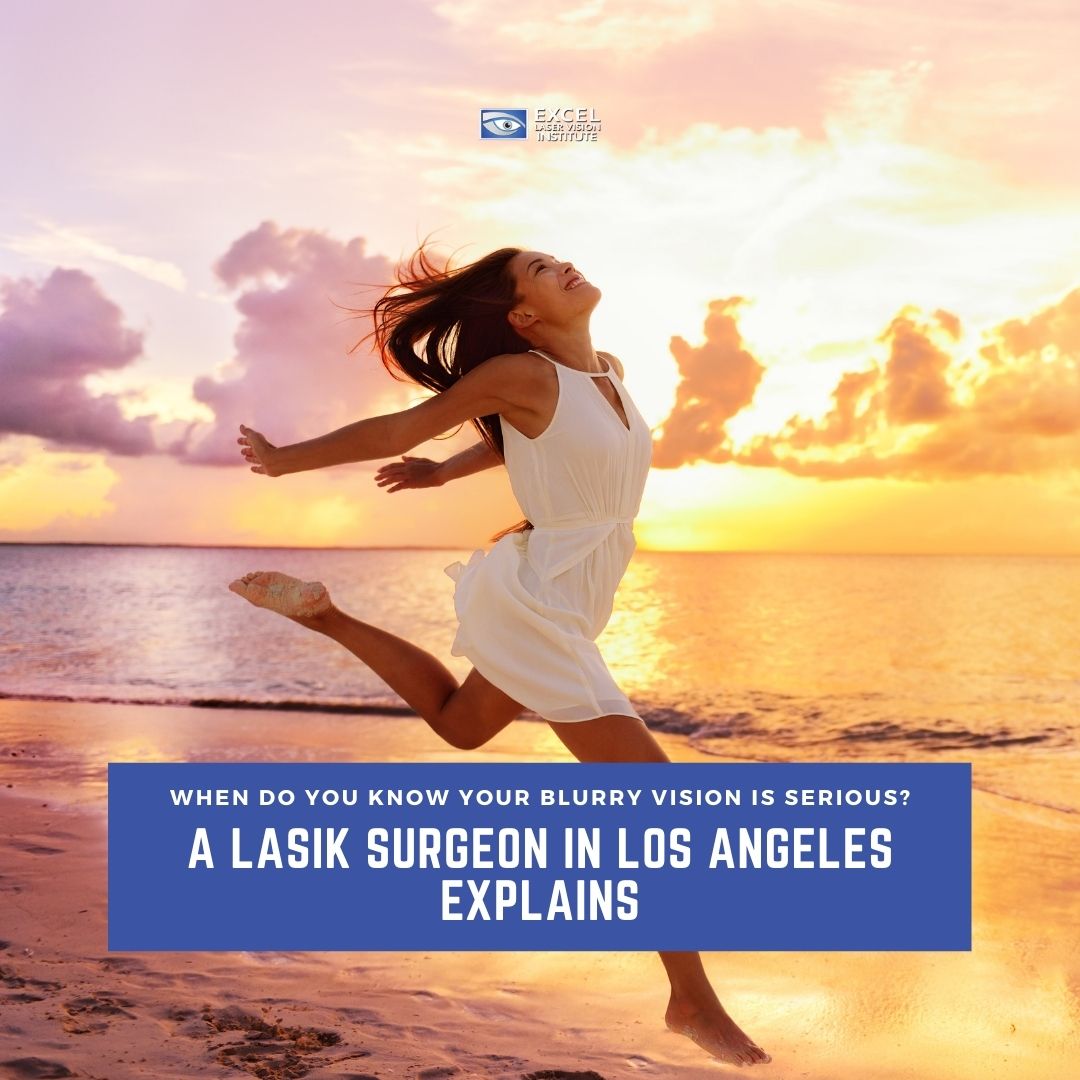
When Do You Know Your Blurry Vision Is Serious? A LASIK Surgeon In Los Angeles Explains
LASIK doctors in Los Angeles can all agree that blurriness is one of the most common complaints they have from patients, and most of the time it is nothing to worry about. That is because most experts of LASIK eye surgery will tell you that blurriness could just be a sign that your glasses or contacts prescription requires updating. However, there are times that doctors notice that a patient’s fuzzy vision is something more to worry about.
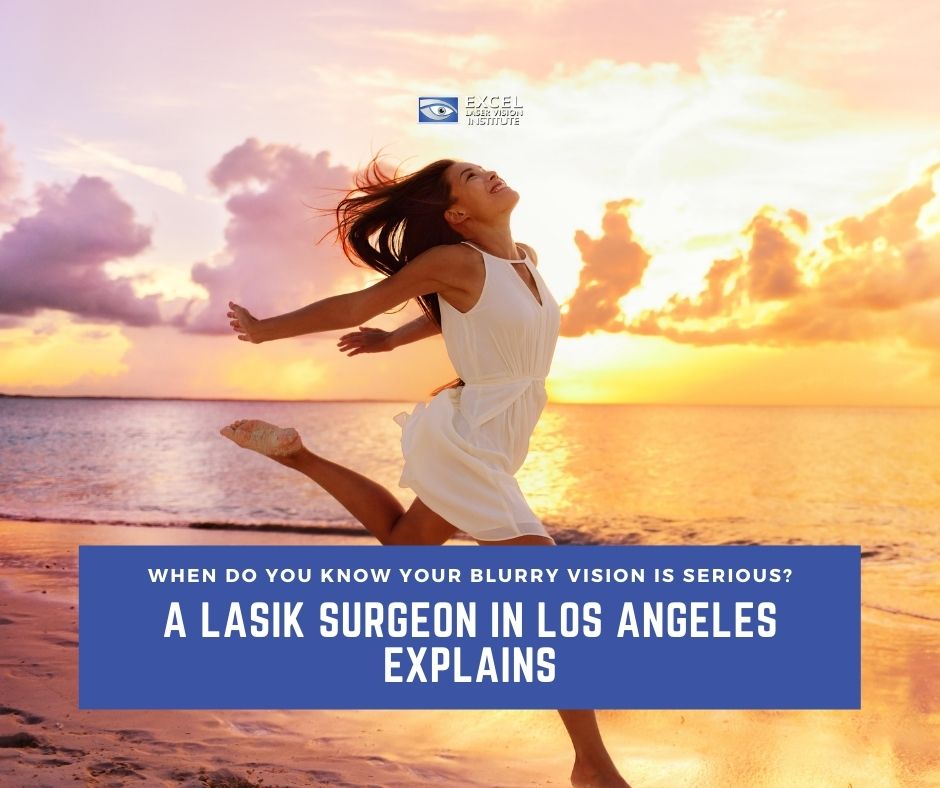
Many corrective eye surgery physicians will tell you to always look into what is causing your blurry vision. Sometimes understanding the reason behind your fuzzy vision could mean the difference to your overall perfect vision.
Here are a few instances when blurry vision may be a symptom of a serious eye problem.
Eye conditions and diseases
If you suddenly experience blurry vision in one eye and are over the age of 60, you could have developed a macular hole in the central zone of your retina.
Unexpected blurry vision may also signify a detached retina, eye herpes, or optic neuritis (optic nerve inflammation).
Specific eye conditions and diseases can result in permanent loss of vision, so it is vital that you see a LASIK surgeon in Los Angeles like Doctor Moosa for diagnosis and treatment if you experience out-of-the-blue blurriness.
Cataracts
You may have cataracts if you are starting to notice vision changes such as blurred or cloudy vision and glare or halos around lights at night. If cataracts are left untreated, they can eventually worsen and obstruct vision to the stage of blindness. However, if you undergo cataract surgery, it will restore your lost vision.
Glaucoma
If you are experiencing blurry vision or “tunnel vision,” this could be the first symptom of glaucoma. Without treatment, vision loss will worsen and permanent blindness can follow.
Age-related macular degeneration
Blurry vision and visual distortions can make straight lines look wavy or broken, which are symptoms of age-related macular degeneration (AMD), a prominent cause of blindness among older people.
Diabetic retinopathy
If you suffer from diabetes, unexplained blurred vision may be because of the onset of diabetic retinopathy, which is a sight-threatening disease that damages the retina of the eye.
Cardiovascular disease and other systemic diseases
Blurred vision, often when it is associated with double vision, can be a symptom of an underlying health emergency such as a stroke or brain hemorrhage. Additionally, it could be an early sign of multiple sclerosis. If you have sudden blurry or double vision, visit an eye doctor immediately.
You have a concussion
If you have recently banged your head severely and are now experiencing vision issues, you may suffer from a head injury. Concussions can result in blurry vision and many other visual changes such as double vision, difficulties with shifting gaze shifting from one point to another, problems focusing, and loss of binocular vision, otherwise known as eye alignment. If you believe you are suffering from a concussion, you should talk to your doctor immediately.
You are stressed out
Stress and anxiety can greatly affect your health in various ways, and that includes your vision. Not many people know how stress can deteriorate their vision and eye health. Sometimes stress can cause the pupils to dilate needlessly, and adrenaline can escalate pressure on the eyes.
Even though the long-term impact of stress on the eyes can vary, most mild discomfort can be dealt with by just naturally lowering your stress level. Nevertheless, continuous heightened stress levels can cause permanent vision loss. Therefore, to prevent stress-related vision issues, you should try to maintain a healthy lifestyle, take frequent visual breaks from screens and technology, and practice other stress-reducing activities such as meditation and exercise.
You have a rare condition called uveitis
If you are experiencing eye blurriness and dryness that is accompanied by inflammation in or around the eye, then you could be suffering from uveitis, a group of diseases that can be linked with auto-immune or infectious disease; however, it is usually restricted to just the eye.
The number of people with uveitis is very low, but the damage it can cause is very severe. Symptoms can vary depending on what part of the eye is affected. For instance, if there is inflammation in the front part of the eye, there is usually redness, light sensitivity, and pain, while inflammation in the back part of the eye presents floaters, fuzzy vision, and flashing lights.
Stroke
You could have blurry or lost vision in both eyes after having a stroke that has affected the part of the brain that controls vision. A stroke that involves your eye causes blurred or lost vision in only one eye.
Other symptoms accompany a stroke, such as weakness on one side of the body or the inability to communicate.
Transient ischemic attack
A transient ischemic attack (TIA) is a stroke that lasts less than 24 hours. One of its symptoms can sometimes be blurred vision in one or both eyes.
Wet macular degeneration
In the middle of your retina, you have something that is called the macula. When abnormal vessels grow, it can result in blood and other fluids leaking into the macula. This is known as wet macular degeneration.
It results in blurriness and vision loss in the center part of a person’s visual field. This is very different to dry macular degeneration since this type can start suddenly and progress very quickly.
On the flip side, if you have mild blurry vision that comes and goes, this could just mean you are overworked, have eye strain, or you are over-exposed to sunlight.
Nonetheless, sudden or continual changes in vision such as blurriness, double vision, tunnel vision, blind spots, halos, or dimness of vision could be symptoms of serious eye disease or other health issues, according to Doctor Moosa, a LASIK expert in Los Angeles.
If you have unexpected changes to your vision, you should always see your eye doctor for laser vision correction as soon as possible.
